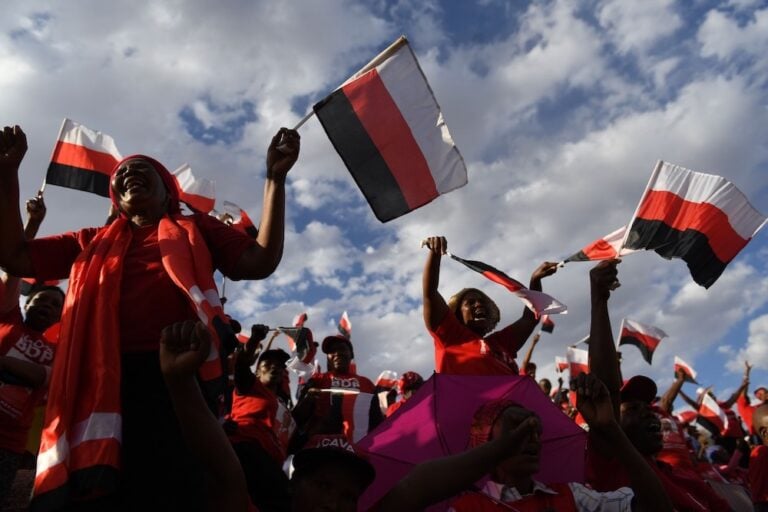(MISA/IFEX) – “The Tswana Times” newspaper has accused the Botswana Telecommunications Corporation (BTC) of denying it advertising as a punishment for publishing an unfavourable report, entitled “Seretse Misled Batswana”, about the corporation on 16 March 2007. According to “The Tswana Times” editor Sello Motseta the head of Public Relations and Communications, James Molosankwe, came to […]
(MISA/IFEX) – “The Tswana Times” newspaper has accused the Botswana Telecommunications Corporation (BTC) of denying it advertising as a punishment for publishing an unfavourable report, entitled “Seretse Misled Batswana”, about the corporation on 16 March 2007.
According to “The Tswana Times” editor Sello Motseta the head of Public Relations and Communications, James Molosankwe, came to the newspaper’s offices before the story was published and demanded that it be shelved.
“In the presence of the journalist involved, I gave Molosankwe an opportunity to rebut allegations made by our sources that information published by BTC in its foreword, indicating that the 2007 BTC Telephone Directory and yellow pages were made in-house, was factually inaccurate,” Motseta wrote in a letter dated 30 July, addressed to the Chief Executive Officer of the corporation.
In an interview with MISA-Botswana, Motseta alleged that Molosankwe also threatened to stop advertising in the newspaper if the story was published. This threat, according to Motseta, became real when he was informed by his sources at the advertising agency that they were instructed not to give advertising to “The Tswana Times”.
Molosankwe, however, has denied Motseta’s allegations and has indicated that decisions on placement and distribution of advertisements are based on several factors, which may include the nature of campaigns the company runs.
“There are several newspapers that we have not yet placed advertisements on for the simple reason that we have not found them suitable for particular campaigns”, Molosankwe said in an interview with MISA-Botswana. He also explained that, with the particular story Motseta referred to, BTC had complained to the newspaper through its lawyers but the newspaper never responded.
“It is now surprising that, about four months down the line, he now makes some defamatory allegations. I can only categorically say what he is alleging is not correct.”
MISA-Botswana is concerned by a growing tendency to use the placement of advertising as inducement to influence editorial decisions. Freedom of expression cannot be held at ransom to economic factors; otherwise, the right to information, as enshrined in various international and regional conventions and protocols, would have no meaning.
While these allegations are still contested, it is indicative of a need to sensitise the general public, including businesses, of the danger of using economic inducement for editorial advantage.
The BTC was established in 1980 to provide, develop, operate and manage Botswana’s national and international telecommunications services. BTC is a para-statal company in which the Botswana government holds 100% equity.
As such, and in line with the Declaration of Principles on Freedom of Expression of the African Commission of Human and Peoples’ Rights, MISA-Botswana wishes to point out that the states are obliged not to use their power over the placement of public advertising as a means to interfere with media content.


